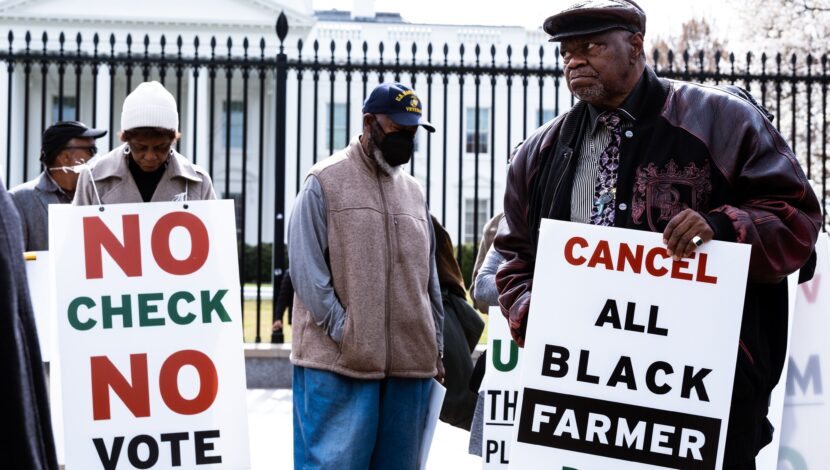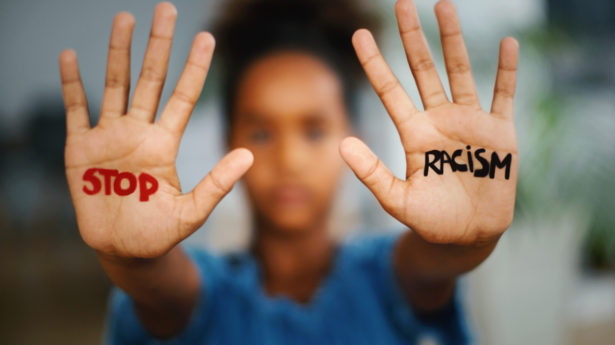The Unitarian Universalist Service Committee advances human rights through grassroots collaborations.
“The Last Plantation:” Black Farmers Persist in Demanding Fair Treatment

By on August 9, 2023
Black people always had a connection to their land. Land meant wealth, yet even wealth was so much more than money. Wealth was the stories and possibilities that came from the shared space, passed down from generation to generation. For Black people who descended from enslaved Africans, the importance of land is evident in our religions, our songs, and our words.
Black farmers in the United States embody this tradition. Many Black people need only go back a generation or two to find ancestors who used agriculture to sustain their families and sell for profit. Having land, using it to produce food, and giving it to the next generation for safekeeping was the way to sustainability.
Unfortunately, life for Black farmers has been anything but sustainable. In 1920, there were about one million Black farmers. Today, only 38,000 remain. The plight of the Black farmer in the United States is a prime example of the anti-Blackness that makes up this country’s very DNA. A visual example of this anti-Blackness is the plantation house, where Black people were made to endure cruel treatment in harsh conditions.
While plantation houses no longer serve the same purpose as they once did, the spirit that animated them remains. In fact, many Black farmers call the United States Department of Agriculture (USDA), the federal umbrella that deals directly with farming, “the last plantation.” Black farmers are the victims of decades-long efforts to disenfranchise them. Even when Black farmers won policy victories—like those resulting from the Pigford lawsuit in the 1990s— government officials found ways to circumvent and deny them their legal rights.
UUSC is partnering with the Black Belt Justice Center (BBJC) to highlight the racism and injustice Black farmers are experiencing. In the coming weeks, UUSC will launch a campaign highlighting the policy decisions that created this injustice and ways to advocate. This campaign will include:
- Brief history of the policies created to benefit Black farmers that have been implemented, yet ignored.
- Retrospectives from current Black farmers.
- A toolkit with various resources that can be used to spread awareness and advocate for Black farmers within your networks.
Right now, UUSC and the Center are advancing a campaign urging the USDA to honor its promises and follow through on policies that benefit Black farmers.
UUSC is looking for institutional sign-ons, so if you are a member of an organization that is invested in this issue—or even if your institution empathizes with the plights of these farmers—please click here to add your institution’s name and voice with those calling for justice.
To read more in-depth coverage about this issue, click here.

